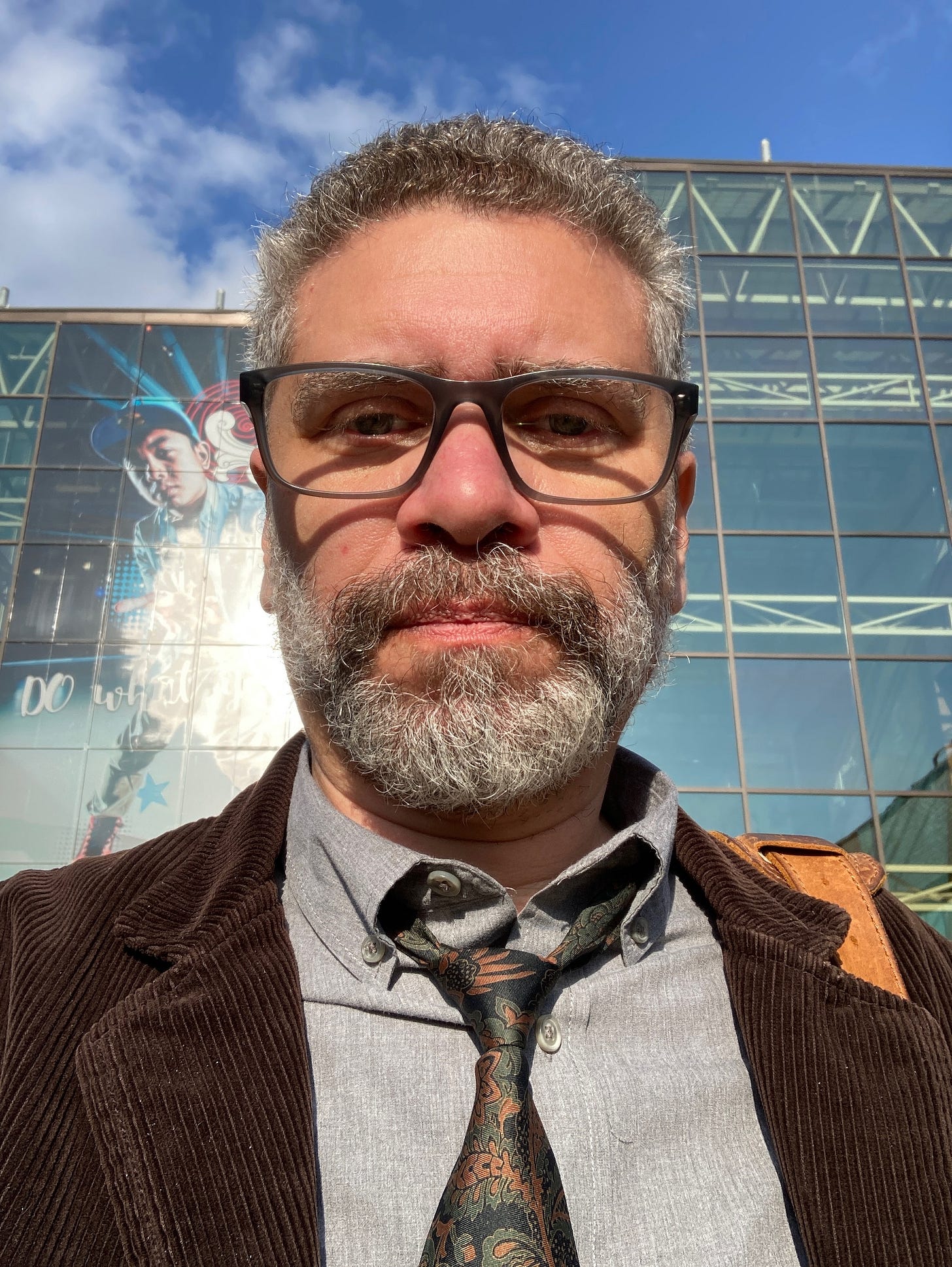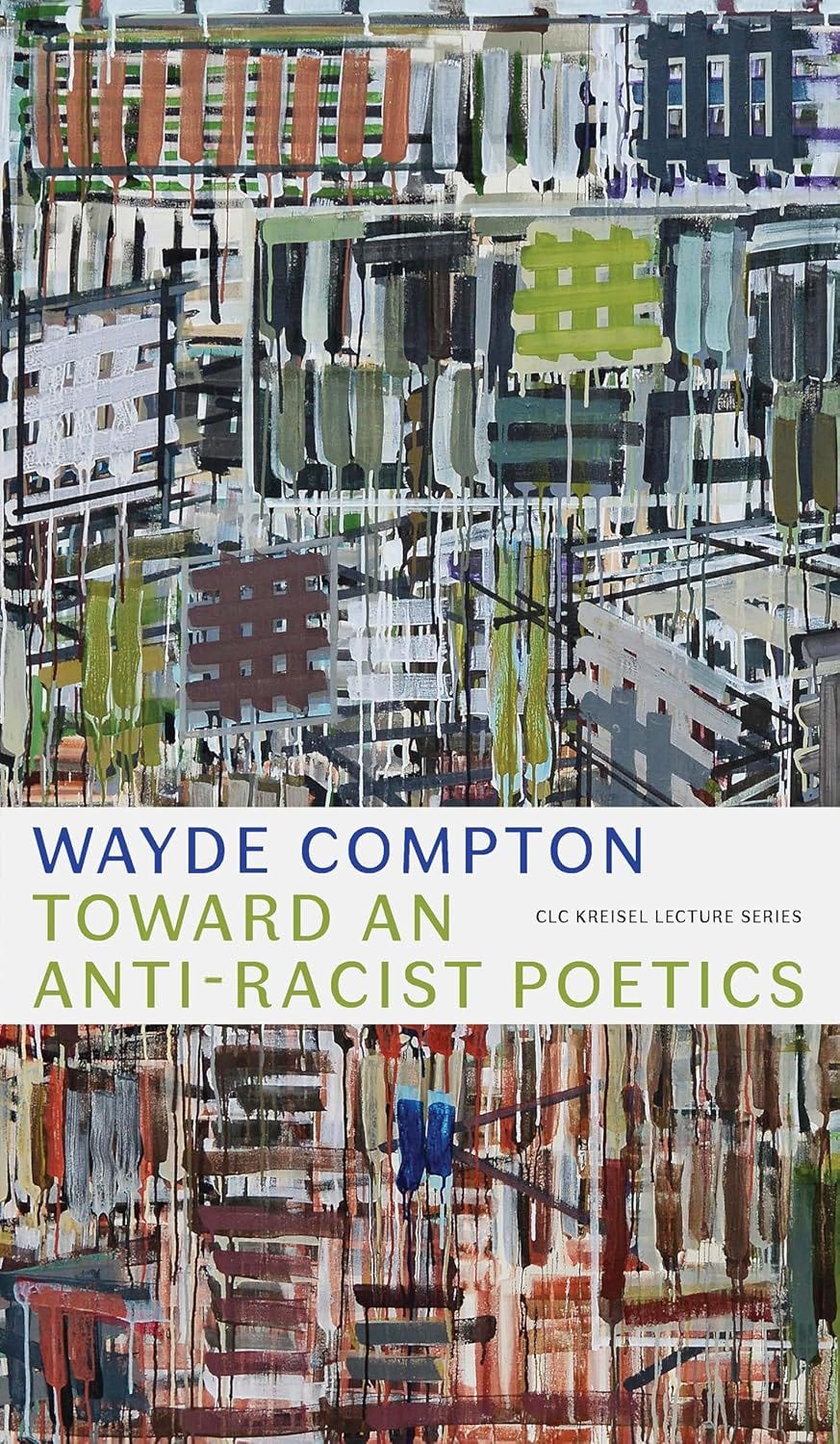#9: An Interview with Wayde Compton
"Each of my writing projects begins with a question I am trying to answer, and my method of answering it is writing toward it."
Welcome to Archipel, an ongoing dialogue between me (Cara Waterfall) and other poets and creatives of all kinds, celebrating the ways we connect through mentorship, community and transitions.If you are interested in participating, please send me an email by replying to this newsletter or click here.
Archipel was also inspired by my very first poetry mentor, my father. When you purchase a subscription to this newsletter, you are paying into a scholarship fund in his name, which will support emerging poets.
To learn more about The Donald E. Waterfall Scholarship Fund, click here.
Thank you for reading!
Today's interview is with Wayde Compton, a Canadian multi-genre author, whose storied career as a writer and activist is as varied as the books he has written. His socially and politically conscious poetry, fiction and nonfiction push the boundaries of what art can become and do, while amplifying Black Canadian voices by chronicling their identity and history. He is the co-founder of Commodore Books, the first Black-oriented press in Western Canada and Hogen’s Alley Memorial Project, an organization that promotes the history of Vancouver's Black community.
Born and raised in Vancouver, Wayde studied English at Simon Fraser University (SFU), where he worked with George Bowering and Roy Miki. Wayde currently teaches Creative Writing at Douglas College in Greater Vancouver.
From 2012 to 2018, Wayde administered the Creative Writing Program in Continuing Studies at SFU, including the Writer’s Studio, when I was studying for my diploma in Poetry & Lyric Discourse. He played a significant part in my decision to become a poet. I initially applied to the Writer’s Studio in the category of creative non-fiction — and not poetry. Wayde recommended that I switch to poetry, deducing where my real passion lay, and the rest is history. I’m grateful that he saw something in me that I had not fully realized myself.
Wayde has published six books, including the poetry collections 49th Parallel Psalm and Performance Bond, the graphic novel The Blue Road: A Fable of Migration and The Outer Harbour, a collection of short stories that won the City of Vancouver Book Award in 2015. He has been a finalist for three other City of Vancouver Book Awards as well as the Dorothy Livesay Poetry Prize.
Wayde’s most recent book, Toward an Anti-Racist Poetics, advocates for a new poetic approach “that makes space for diversity by doing away with universalism in both lyric and avant-garde verse”, and for the equal value of multiple cultural positions when engaging with a text.
Who are you and how do you express your creativity or describe your art?
I'm Wayde Compton and I'm a multi-generic writer.
What keeps you coming back to creative work? Why is it worth doing?
I think through social and personal problems by writing. Each of my writing projects begins with a question I am trying to answer, and my method of answering it is writing toward it.
I believe in Keats's theory of Negative Capability in this regard, that a writer is most interesting when they are learning through writing, rather than trying to deliver pre-thought themes to a reader. I write to discover what I think about something.
What legacy do you hope to leave with your art?
I hope my writing produces more writing in response.
What are your biggest challenges when it comes to maintaining a steady creative practice, and how have you overcome them?
Time is always what a writer needs more of. That's the main problem.
What advice do you have for someone who wants to start or maintain their creative practice in a new way?
My main advice to a writer figuring out their practice is to find other writers to walk this path with.
Writing is a strange job, and you need community support to maintain the faith in doing it. Other artists understand in ways that non-artists won't necessarily.
Who are your mentors and how have they impacted you?
I've had great mentors through my writing life: Leo McKay, George Bowering, Roy Miki, Betsy Warland. Each showed me a different thing about what I might do.
I would say that being mentored is a proactive thing: you need to elicit mentorship from a mentor. If they're good, they are probably careful not to advise you unless you want advice. So you need to seek it out.
Mainly what they do is show you what you're capable of, and show you how you might live a life serving this art form.
It's more example than anything else really.
Who is your dream mentor, living or dead, and why?
So many, but the writer I really wish I could have studied with is James Baldwin. It's hard to comprehend how he produced such great writing, and I'd love to have been able to talk to him personally about that. And also how he fit activism into his literary project.
(Interview answers received via email October 6, 2024.)



